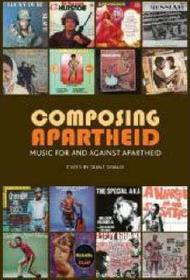
Composing Apartheid ? Music for and against apartheid
Music for and against apartheid
-
10% KEDVEZMÉNY?
- A kedvezmény csak az 'Értesítés a kedvenc témákról' hírlevelünk címzettjeinek rendeléseire érvényes.
- Kiadói listaár GBP 26.99
-
13 319 Ft (12 685 Ft + 5% áfa)
Az ár azért becsült, mert a rendelés pillanatában nem lehet pontosan tudni, hogy a beérkezéskor milyen lesz a forint árfolyama az adott termék eredeti devizájához képest. Ha a forint romlana, kissé többet, ha javulna, kissé kevesebbet kell majd fizetnie.
- Kedvezmény(ek) 10% (cc. 1 332 Ft off)
- Kedvezményes ár 11 987 Ft (11 417 Ft + 5% áfa)
Iratkozzon fel most és részesüljön kedvezőbb árainkból!
Feliratkozom
13 319 Ft

Beszerezhetőség
Becsült beszerzési idő: A Prosperónál jelenleg nincsen raktáron, de a kiadónál igen. Beszerzés kb. 3-5 hét..
A Prosperónál jelenleg nincsen raktáron.
Why don't you give exact delivery time?
A beszerzés időigényét az eddigi tapasztalatokra alapozva adjuk meg. Azért becsült, mert a terméket külföldről hozzuk be, így a kiadó kiszolgálásának pillanatnyi gyorsaságától is függ. A megadottnál gyorsabb és lassabb szállítás is elképzelhető, de mindent megteszünk, hogy Ön a lehető leghamarabb jusson hozzá a termékhez.
A termék adatai:
- Kiadó MI ? New York University
- Megjelenés dátuma 2008. június 1.
- Kötetek száma Print PDF
- ISBN 9781868144563
- Kötéstípus Puhakötés
- Terjedelem320 oldal
- Méret 235x155x17 mm
- Súly 479 g
- Nyelv angol
- Illusztrációk 29 black and white illustrations 0
Kategóriák
Rövid leírás:
Composing Apartheid explores how music was produced through, and provided key features of apartheid?s social and political topography, and how music and musicians contested and helped to conquer apartheid. These essays include historians, sociologists and anthropologists, as well as ethnomusicologists, music theorists and historical musicologists
TöbbHosszú leírás:
Composing Apartheid is the first book ever to chart the musical world of a notorious period in world history, apartheid South Africa. It explores how music was produced through, and was productive of, key features of apartheid?s social and political topography, as well as how music and musicians contested and even helped to conquer apartheid. The collection of essays is intentionally broad, and the contributors include historians, sociologists and anthropologists, as well as ethnomusicologists, music theorists and historical musicologists. The essays focus on a variety of music (jazz, music in the Western art tradition, popular music) and on major composers (such as Kevin Volans) and works (Handel?s Messiah). Musical institutions and previously little-researched performers (such as the African National Congress?s troupe-in-exile, Amandla) are explored. The writers move well beyond their subject matter, intervening in debates on race, historiography, and postcolonial epistemologies and pedagogies.
Több



